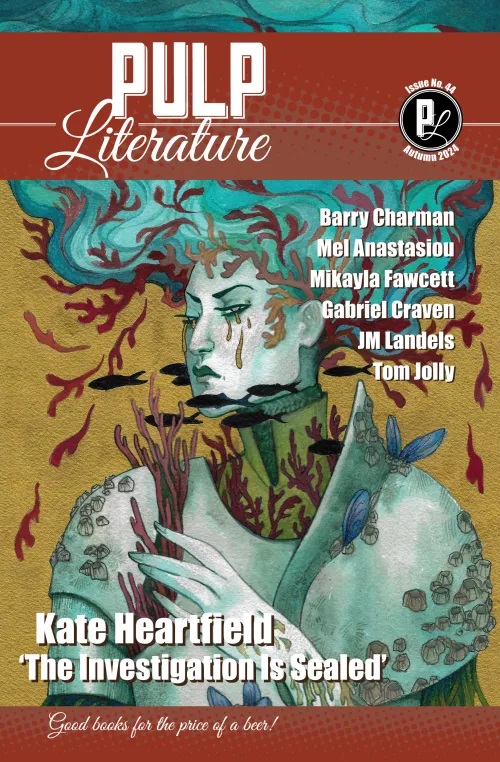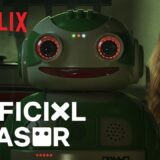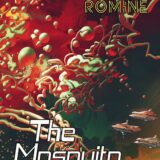
OBIR: Occasional Biased and Ignorant Reviews reflecting this reader’s opinion.

Pulp Literature Magazine #44 Autumn 2024
Published by Pulp Literature Press, Langley, British Columbia, Canada, Winter 2024.
Editor in Chief: Jennifer Landels; Senior Editor: Melanie Anastasiou; Acquisitions Editor: Genevieve Wynand; Poetry Editors: Daniel Cowper & Emily Osborne; Copy Editor: Amanda Bidnall; Russian Editor: Anna Belkine; Proofreader: Sierra Louie; Graphic Design: Amanda Bidnall & Sierra Louie; Cover Design: Kate Landels.
Cover art: Ceren of the Surf – by Bronwyn Schuster
Interior Illustrations – by Mel Anastasiou
The Investigation is Sealed – by Kate Heartfield
Premise:
What if a magic potion can reveal everything there is to know about a mining disaster?
Review:
A short but impactful story which captures the true horror of a mine disaster. I’d like to say more, as this story is evidently inspired by a famous modern coal mine disaster in the Maritimes, one still fresh in the memory of many, but I don’t want to weaken the raw, biting power of the conclusion. Sometimes fantasy can reveal more about reality than we want to know.
Feature Interview – Pulp Literature interviews Kate Heartfield
Review:
“I find the past inherently uncanny, because it feels so familiar…” I identify with this line. Kate goes on to explain that the past is not in fact familiar, that we can only speculate what actually happened, and, it is implied, writing about the past is as valid as any fiction, is simply another form of fiction, and thus even fantasy is just a way of shining a new light on the past.
The above a clumsy bit of paraphrase on my part. Point is Kate’s comments have opened my eyes to the value of fantasy fiction “inspired” by history. Being somewhat literal minded, I’ve tended to regard a science fictional use of history as more valid than a fantasy approach. I see now that I was wrong. Both are equally wondrous.
Also pleased to note Kate likes to exercise with a longsword. At my age I’d be hard put to imitate her. Perhaps if I were to lumber about (where she leaps about) waving my letter opener I might accomplish something health-wise.
Take My Hand (Part 2): Exit Light – by Mel Anastasiou
Premise:
“It’s April 1991. Jamie Stewart, a night orderly in a city hospital, is in the grip of a haunting that, in darkness, takes her over entirely. And in daytime she hides from the criminal family she escaped months before.”
Review:
First, we see Jamie’s point of view. Being occasionally haunted by an unknown ghost is only a distraction from her biggest fear. She’s on the run, and dares not trust anyone, except maybe her friend Wes. He’s a practical kind of guy. Having read the automatic writing her ghost inflicts on Jamie, and believing Jamie to be sane, he accepts the reality of the ghost and wants to help her get rid of it.
Then we see the ghost’s point of view, as manifest in the latest bout of writing. Goes by the name of Casey. Though he communicates with Jamie by writing, he is able to converse in person with his live friend, a bit of a nerd, named Dylan. Turns out Dylan is a practical guy, too. He has no problem accepting the reality of the ghost and is eager to help.
Normally, debating whether one has seen a ghost is the subject of inner monologue. Here, both main characters are able to debate the ongoing situation through personal dialogue with a good buddy. This has several advantages over monologue.
For one thing, both in each partnership are ordinary people and tend to distract themselves and each other by going off topic for no particular reason, thus rendering the conversation credible and natural. For another, monologue tends to be narcissistic and obsessive, but dialogue allows the characters to spark ideas off each other and bring up topics the other might never have thought of. The sum of this is a greater sense of realism in the story.
The story is fashioned as a mystery. Jamie is trying to find out why Casey is haunting her, and Casey is trying to figure out why he’s become a belated ghost fifty years after he died. In a sense this is a story with two detectives, each with their own sidekick. So far, the pace is relaxed and contemplative. It’s rather like reading a Sherlock Holmes story. The attraction is the process of deduction.
I can add that there are bits of business referring to life practices back in 1991, nostalgic for some and amusing for many. Adds texture to the tale.
I confess there is some tension building over the bad family’s hunt for Jamie, but I’m more intrigued by the question of why the ghost fears going into the light, the traditional, proverbial white light. What lies within? Heaven? Hell? Something worse? I’m hoping for a gutsy revelation, or at least a satisfying one.
Can’t wait to read what happens next.
Liar’s Leap – by Jonathan Sean Lyster
Premise:
What if aliens pick up our television broadcasts?
Review:
A failing in some science fiction is that an alien species interpreting our television broadcasts is inevitably perceived as wiser and more advanced than we are, a race composed entirely of Carl Sagan-like intellects, who not only grasp our true nature from our television programs but understand us better than we understand ourselves. Frankly, this is unlikely.
In the movie “Galaxy Quest” aliens fixate on just one TV series as representative of the true reality of Earth civilization. But what if all TV broadcasts are regarded as documentary in nature, as literal truth? And what if the alien watchers, technologically advanced and as intelligent as we are, but gifted by evolution with a totally different mindset, cannot understand us at all? How would they react? Would they look forward to first contact? Or dread it?
Their problem is the result of something we are prone to, a tendency to speculate about aliens (should they be proven to exist) as if they were just a bunch of furries, i.e. humans wearing silly costumes. They may look alien, a tentacle here, a compound eye there, but deep down inside they think like us folks and all we have to do to become pals is to demonstrate how nice we are to know. Surely, they will reciprocate.
Nope. You can’t even apply this theory to ourselves. Carl Sagans are few and far between. Just watch the news. So far, it has proven impossible to get the human race to behave in a like-minded fashion. You want to meet aliens? Try talking to people at a bus stop. Chances are at least a few have nothing in common with you and prefer it that way. You might be able to play chess with an alien, but I doubt you’d have a comfortable time shooting the breeze. Mutual incomprehension is inevitable.
This story is good old-fashioned fun. Sean first establishes why the alien species is normal (from its point of view), then delineates the weirdness and mind-boggling insanity of the human race, as “proven” by our television programs. Seen in aggregate, nothing we reveal about ourselves makes sense. The deeper the aliens delve into our behaviour, the more disturbed we appear, an abomination in the natural scheme of things, an affront to the laws governing the universe.
No wonder the aliens are puzzled. One of them, however, is close to an epiphany which may put it on the correct path to understanding. Is that a good thing or a bad thing?
I suspect Sean had great fun writing this story, almost as much fun as I had reading it, but it presents a valid truth. Communication is harder than we think. Because it always reflects what we think rather than what the “other” thinks. Plain English is bad enough, since everybody interprets words according to their personal idiom. Dealing with an alien mind beset with alien instincts, emotions, motivations and assumptions is going to be bloody impossible even if they speak English.
If the galaxy is swarming with advanced civilizations, why haven’t they contacted us? Perhaps because they’re intelligent enough to know they don’t know how.
In any case, I had a romping good time reading this story. It raises all sorts of intriguing questions. I’m with Stephen Hawkins. Let’s not talk to aliens.
A Fair Exchange – by Tom Jolly
Premise:
Can you negotiate with a Raven?
Review:
Speaking of non-human mindsets… Crime doesn’t pay, or does it? Especially when you achieve an understanding with a Raven? Granted, they are said to be highly intelligent, capable of carrying a grudge, for instance. Certainly, they distinguish humans as individuals. The Raven in this story seems a trifle too intelligent, yet all its activity is in keeping with the premise of the story. This is a modern fairy tale, and a charming one at that.
Granted, a bit of violence intrudes, and the three main characters are operating entirely on selfish motives, which turns out to be a curiously honest mechanism for reaching true understanding and a plausible level of temporary cooperation. Consequently, it is easy to suspend disbelief and enjoy the story.
Essentially, this is a wish-fulfillment fantasy, each character striving to take advantage of unanticipated happenstance to get what they want. In a sense, I was rooting for all three of them.
This story makes me wonder if I should start leaving peanuts on the tree stump in the front yard. If you read it, you’ll understand.
The Projectionist – by Lisa Alo Seaman
Premise:
What if you were the only one permitted free speech?
Review:
Every night Boris projects silent newsreels from the past accompanied by his narration lecturing on the meaning of what the audience is viewing. This gives him a sense of accomplishment, almost as if his life has a purpose.
What makes the story a story is the context of his work. The story is Kafkaesque in its ambiguity and lack of detail. Yet there are hints that all is much worse than it seems. All sorts of questions arise. What do the newsreels show? What do his narrations say? Is he free to say what he wants, or does he self-censure what he writes? What is his function? Educator? Propagandist? Entertainer? All three? The reader is forced to make assumptions which are probably true since no other explanation is possible. Or is it?
This is a subtle yet disturbing piece of dystopian science fiction. I think Kafka would admire it. I certainly do.
A Weaver’s Web – by Barry Charman
Premise:
An invite to one of Deadsy’s parties in his country mansion usually proves fatal, but people find it hard to turn it down.
Review:
Deadeye Sixpence and his new acquaintance Willow the Spider Lady enjoy the party as much as any survivor can, then repair to a local tavern to get to know each other better. Pity Deadsy doesn’t approve.
This story is hard to describe. Lovecraft with a light touch. Over-the-top everything yet luminous with sparkling humour. Impossible to take seriously but as sincere and consistent to its premise as the very best Daffy Duck cartoons.
Not a piece of fluff, however. Not only do the plot and the characters make sense within their chaotic world (think of the movie “Who Killed Roger Rabbit?” for a similar sense of unreal reality, or real unreality, or whatever), but there are also a surprising number of innovative concepts pertaining to ghosts and other supernatural manifestations. Strikes me as both wonderfully entertaining and pleasingly full of nifty ideas. It exhibits just the right tone to tickle my funny bone. A pleasure to read. Upbeat and fun.
The 2024 Magpie Award for Poetry
Winner: From the Back Row of the Theatre I Am – by Angela Rebrec
Premise:
When you say “I am,” what do you mean exactly?
Review:
A prose poem essay on the perils of childhood influence expressed in theatrics. Calls into question the usual suspects: the meaning of existence and even the meaning of meaning. A trifle depressing yet cause for hope.
First Runner-up: Have You Seen Precious? – by Cicely Grace
Premise:
What does a missing kitten imply?
Review:
Why, a re-examination of one’s state of being, of course, and how to resolve the conundrum. A solution is offered. Whether it works or not is beside the point. Seeking a solution is in itself the solution. At least, that’s my takeaway.
Second Runner-up: Roving Писанки – by Veronica Gorlova
Premise:
All about magical, ubiquitous, Easter eggs.
Review:
“Писанки” translates from the Serbian as “Easter eggs,” so the title is “Roving Easter Eggs,” which sums up the plot of this poem. Apart from the title, there are 36 Serbian words scattered throughout the 46 lines of this poem.
Does this render the poem indecipherable to the casual reader too rushed to google translation? Actually, no. Lines like “I rolled over / and felt an oval along my spine…” are a bit of a giveaway. Even better, the poem begins “I have an egg with магической силой” which, granted, isn’t entirely transparent to someone who doesn’t know Serbian, but does enable the average reader to capture the gist of the poem from the English language portions of the lines when keeping the concept of “an egg” uppermost in mind. One gathers that supernatural forces are warring over the eggs and that the eggs themselves are magical/mythical in nature and function. In short, the poem stresses the original spiritual meaning of what has now become a fun annual treat for kiddies. It is not strictly necessary to understand the Serbian words in order to understand the poem. Quite a feat on the part of the poet.
In a sense, the Serbian words written in Cyrillic add visual “texture” to the poem. Might drive some people crazy, but I don’t mind it at all. I think it’s rather cool.
Bad Backup – (Graphic Story) by Gabriel Craven & Mikayla Fawcett
Premise:
You have to be in tiptop shape to fight zombies.
Review:
The title is a pun of sorts. Tough guy Sergei arrives at a job before his boss, Greg, is on scene. Sergei tries to unload equipment from his truck, but wouldn’t you know it, the rain turns into a downpour, and then the zombies attack. Sergei is too busy defending himself to attempt to get away. He needs Greg to show up but quick.
Sergei’s sardonic, tough guy attitude reminds me a lot of the 1980s underground Canadian comic book series “Reid Fleming, World’s Toughest Milkman” by Vancouver artist David Boswell. Both Sergei and Reid are outrageously sarcastic and tough as nails. Both prone to hard times but good with fists and quips. Both equally entertaining. Though not someone you’d want as a next-door neighbour, except maybe during the zombie apocalypse. Anyway, the dark humour of Sergei’s adventure appeals to me. And the artwork is superb. Brutal in style, but superbly appropriate.
The Shepherdess: Narbonne – J.M. Landels
Premise:
“Previously: Toinette Berger is a shepherdess-turned-spy and a member of the mysterious Order of the Silver Branch. She has spent the last year of her apprenticeship at La Tectume, a refuge belonging to the Order and hidden in a seemingly abandoned château-fort in the low Pyrenées. This period of rest comes to an end with the arrival of a face from the past: the courtier Michel la Foix, who arrives to entreat the help of Toinette’s mistress, Madame la Comtesse, on behalf of an acquaintance known only as James.”
Review:
The adventures of Toinette have been serialized in Pulp Literature Magazine since issue #24 in the autumn of 2019. Nothing less than a historical fiction novel (as opposed to novelizations of non-fictional historical events) taking place in the realm of the Sun King of France.
In this episode Toinette accompanies Madame and Michel away from the chateau to a not-very-respectable inn on the outskirts of Paris where two bad things happen and it’s up to Toinette to resolve the problems with her usual combination of guile and violence. As always, she is handicapped by her ignorance of the subtext of what is actually going on. No matter. She remains true to her sense of duty, or die trying.
Once again, the reality of the era is brought vividly to life through telling detail. For example, there are armed constables dedicated to keeping the peace in the streets of Paris, but their authority does not extend to solving crimes or protecting the innocent. They are present merely to bust the heads of anyone causing trouble. This leaves plenty of room for both heroes and villains to indulge in skullduggery. Opportunities abound. Manners and threats intermingle, which makes for a fascinating read.
CONCLUSION:
Pulp Literature Magazine is renowned for its wide variety of genre fiction reflecting the pulp fiction of old but with modern sensibilities and sophistication. Always a good read.
Check it out at: < Pulp Literature Magazine #44 >










